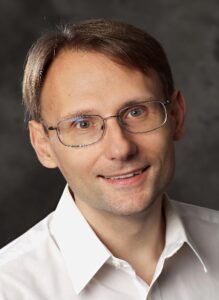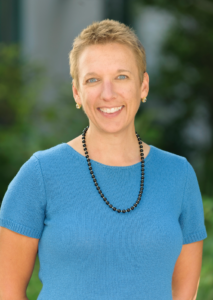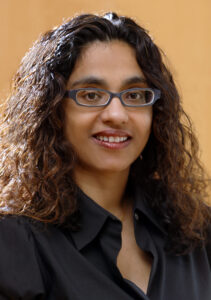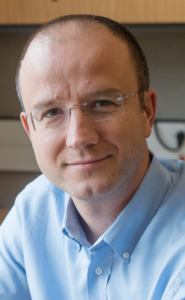The Computing Research Association (CRA), in consultation with the National Science Foundation (NSF), has appointed five new members to the Computing Community Consortium (CCC) Council:
- Sven Koenig, University of Southern California
- Chandra Krintz, University of California, Santa Barbara
- William Regli, University of Maryland
- Mona Singh, Princeton University
- Ufuk Topcu, University of Texas at Austin
Beginning July 1, the new members will each serve three-year terms. The CCC Council is comprised of 20 members who have expertise in diverse areas of computing. They are instrumental in leading CCC’s visioning programs, which help catalyze and enable ideas for future computing research. Members serve staggered three-year terms that rotate every July.
The CCC encourages participation from all members of the computing research community in our various activities. Each year, the CCC issues a call for proposals for visioning activities. Each spring, the CCC issues a call for nominations for Council members effective the following July. For more information, please visit the CCC website or contact Dr. Ann Schwartz Drobnis, CCC Director, at adrobnis@cra.org.
Bios of New CCC Council Members
Sven Koenig
 Sven Koenig is a Professor of Computer Science at the University of Southern California. Most of his research centers around techniques for decision making (planning and learning) that enable single situated agents (such as robots or decision-support systems) and teams of agents to act intelligently in their environments and exhibit goal-directed behavior in real-time, even if they have only incomplete knowledge of their environment, imperfect abilities to manipulate it, limited or noisy perception or insufficient reasoning speed. Sven is a fellow of the Association for the Advancement of Artificial Intelligence (AAAI), the Association for Computing Machinery (ACM), the Institute of Electrical and Electronics Engineers (IEEE), and the American Association for the Advancement of Science (AAAS).
Sven Koenig is a Professor of Computer Science at the University of Southern California. Most of his research centers around techniques for decision making (planning and learning) that enable single situated agents (such as robots or decision-support systems) and teams of agents to act intelligently in their environments and exhibit goal-directed behavior in real-time, even if they have only incomplete knowledge of their environment, imperfect abilities to manipulate it, limited or noisy perception or insufficient reasoning speed. Sven is a fellow of the Association for the Advancement of Artificial Intelligence (AAAI), the Association for Computing Machinery (ACM), the Institute of Electrical and Electronics Engineers (IEEE), and the American Association for the Advancement of Science (AAAS).
Chandra Krintz
 Chandra Krintz is a Professor of Computer Science at the University of California, Santa Barbara (UCSB). She joined the UCSB faculty in 2001 after receiving her M.S. and Ph.D. degrees in Computer Science from the UC San Diego. Chandra’s research focuses on programming and distributed systems, including techniques that improve performance, reduce energy consumption, and automate development and deployment of software. Recently, her work has focused on the intersection of IoT, edge and cloud computing, and data analytics with applications in farming, ranching, and conservation science (cf SmartFarm and WTB). Chandra has mentored over 70 undergraduate and graduate students, has published numerous research articles, participates in efforts to broaden participation in computing, and is the progenitor of the AppScale project. Chandra’s efforts have been recognized with a NSF CAREER award, the CRA-W Anita Borg Early Career Award (BECA), and with a UCSB Sustainability Champion and Academic Senate Distinguished Teaching Award.
Chandra Krintz is a Professor of Computer Science at the University of California, Santa Barbara (UCSB). She joined the UCSB faculty in 2001 after receiving her M.S. and Ph.D. degrees in Computer Science from the UC San Diego. Chandra’s research focuses on programming and distributed systems, including techniques that improve performance, reduce energy consumption, and automate development and deployment of software. Recently, her work has focused on the intersection of IoT, edge and cloud computing, and data analytics with applications in farming, ranching, and conservation science (cf SmartFarm and WTB). Chandra has mentored over 70 undergraduate and graduate students, has published numerous research articles, participates in efforts to broaden participation in computing, and is the progenitor of the AppScale project. Chandra’s efforts have been recognized with a NSF CAREER award, the CRA-W Anita Borg Early Career Award (BECA), and with a UCSB Sustainability Champion and Academic Senate Distinguished Teaching Award.
William Regli
 William “Bill” Regli is the Executive Director of the University of Maryland’s University-Affiliated Research Center for the Department of Defense: The Applied Research Laboratory for Intelligence and Security (ARLIS). From 2014 to 2017 Regli served on the leadership team of the Defense Advanced Research Projects Agency (DARPA), as Deputy Director (9/14-12/16) and Acting Director (1/17-7/17) of the Defense Sciences Office (DSO); then as Special Assistant to the DARPA Director (8/17-12/17). Bill holds a Ph.D. in Computer Science from the University of Maryland at College Park and Bachelor of Science degree in Mathematics from Saint Joseph’s University. He is an elected Senior Member of both the Association of Computing Machinery (ACM) and of the Association for the Advancement of Artificial Intelligence (AAAI). As well as Fellows of both the Computer Society of the Institute of Electrical and Electronics Engineers (IEEE) and the American Association for the Advancement of Science (AAAS).
William “Bill” Regli is the Executive Director of the University of Maryland’s University-Affiliated Research Center for the Department of Defense: The Applied Research Laboratory for Intelligence and Security (ARLIS). From 2014 to 2017 Regli served on the leadership team of the Defense Advanced Research Projects Agency (DARPA), as Deputy Director (9/14-12/16) and Acting Director (1/17-7/17) of the Defense Sciences Office (DSO); then as Special Assistant to the DARPA Director (8/17-12/17). Bill holds a Ph.D. in Computer Science from the University of Maryland at College Park and Bachelor of Science degree in Mathematics from Saint Joseph’s University. He is an elected Senior Member of both the Association of Computing Machinery (ACM) and of the Association for the Advancement of Artificial Intelligence (AAAI). As well as Fellows of both the Computer Society of the Institute of Electrical and Electronics Engineers (IEEE) and the American Association for the Advancement of Science (AAAS).
Mona Singh
 Mona Singh is a Professor of Computer Science and the Lewis Sigler Institute for Integrative Genomics at Princeton University. She received her A.B. and S.M degrees from Harvard University, and her Ph.D. from MIT, all three in computer science. She works broadly in computational molecular biology, as well as its interface with machine learning and algorithms. Much of her work is on developing algorithms to decode genomes at the level of proteins and she is especially interested in developing data-driven methods for predicting and characterizing protein sequences, functions, interactions and networks, both in healthy and disease contexts. She is Editor-in-Chief of the Journal of Computational Biology. Among her awards are the Presidential Early Career Award for Scientists and Engineers (PECASE) in 2001, and the Rheinstein Junior Faculty Award from Princeton’s School of Engineering and Applied Science in 2003. She was named a Fellow of the ACM in 2019, and of the ISCB in 2018.
Mona Singh is a Professor of Computer Science and the Lewis Sigler Institute for Integrative Genomics at Princeton University. She received her A.B. and S.M degrees from Harvard University, and her Ph.D. from MIT, all three in computer science. She works broadly in computational molecular biology, as well as its interface with machine learning and algorithms. Much of her work is on developing algorithms to decode genomes at the level of proteins and she is especially interested in developing data-driven methods for predicting and characterizing protein sequences, functions, interactions and networks, both in healthy and disease contexts. She is Editor-in-Chief of the Journal of Computational Biology. Among her awards are the Presidential Early Career Award for Scientists and Engineers (PECASE) in 2001, and the Rheinstein Junior Faculty Award from Princeton’s School of Engineering and Applied Science in 2003. She was named a Fellow of the ACM in 2019, and of the ISCB in 2018.
Ufuk Topcu
 Ufuk Topcu is an Associate Professor in the Department of Aerospace Engineering and Engineering Mechanics at The University of Texas at Austin. He is a core faculty member at the Oden Institute for Computational Engineering and Sciences. Ufuk obtained his Doctor of Philosophy degree from the University of California, Berkeley in 2008. Prior to joining The University of Texas at Austin, he was with the Department of Electrical and Systems Engineering at the University of Pennsylvania. He was a postdoctoral scholar at California Institute of Technology until 2012. Ufuk’s research focuses on the theoretical and algorithmic aspects of design and verification of autonomous systems, typically in the intersection of formal methods, reinforcement learning and control theory. He takes a relatively broad view on autonomy and tend to tackle abstract problems motivated by challenges cutting across multiple applications of autonomy. His research contributions have been recognized by the NSF CAREER Award, the Air Force Young Investigator Award, the IEEE CSS Antonio Ruberti Young Researcher Prize, and Oden Institute Distinguished Researcher Award.
Ufuk Topcu is an Associate Professor in the Department of Aerospace Engineering and Engineering Mechanics at The University of Texas at Austin. He is a core faculty member at the Oden Institute for Computational Engineering and Sciences. Ufuk obtained his Doctor of Philosophy degree from the University of California, Berkeley in 2008. Prior to joining The University of Texas at Austin, he was with the Department of Electrical and Systems Engineering at the University of Pennsylvania. He was a postdoctoral scholar at California Institute of Technology until 2012. Ufuk’s research focuses on the theoretical and algorithmic aspects of design and verification of autonomous systems, typically in the intersection of formal methods, reinforcement learning and control theory. He takes a relatively broad view on autonomy and tend to tackle abstract problems motivated by challenges cutting across multiple applications of autonomy. His research contributions have been recognized by the NSF CAREER Award, the Air Force Young Investigator Award, the IEEE CSS Antonio Ruberti Young Researcher Prize, and Oden Institute Distinguished Researcher Award.
The CCC and CRA thank those council members whose terms end on June 30 for their exceptional dedication and service to the CCC and to the broader computing research community. Please stay tuned to a post highlighting their contributions to the community.
- Mark D. Hill, Microsoft and University of Wisconsin, Madison
- David Parkes, Harvard University
- Shwetak Patel, University of Washington
- Ronitt Rubinfeld, Massachusetts Institute of Technology
- Suresh Venkatasubramanian, University of Utah
Learn more about the CCC Council and its members on our webpage!









